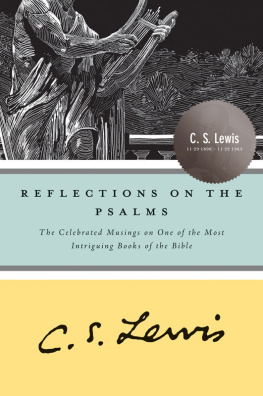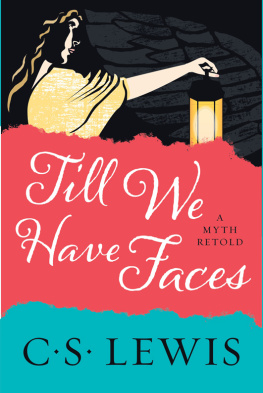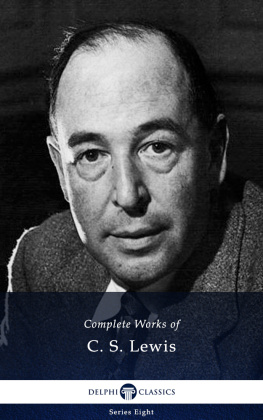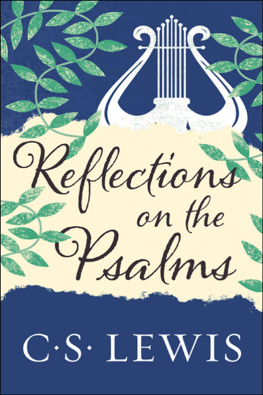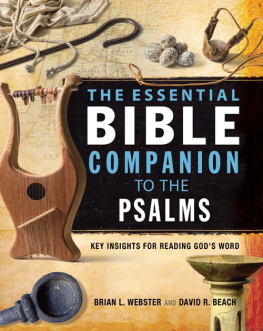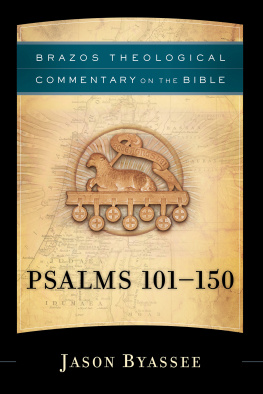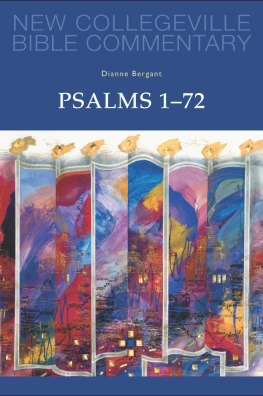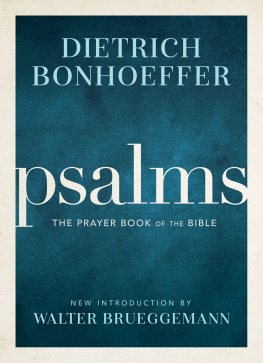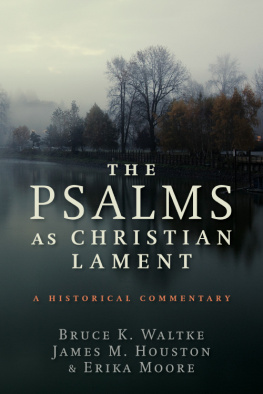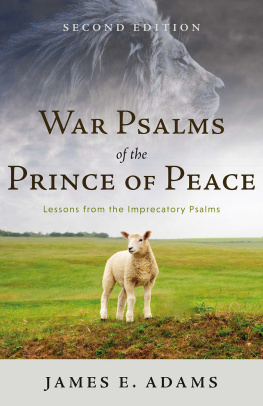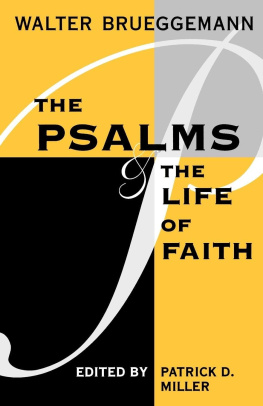C. S. Lewis - Reflections on the Psalms
Here you can read online C. S. Lewis - Reflections on the Psalms full text of the book (entire story) in english for free. Download pdf and epub, get meaning, cover and reviews about this ebook. year: 0, genre: Religion. Description of the work, (preface) as well as reviews are available. Best literature library LitArk.com created for fans of good reading and offers a wide selection of genres:
Romance novel
Science fiction
Adventure
Detective
Science
History
Home and family
Prose
Art
Politics
Computer
Non-fiction
Religion
Business
Children
Humor
Choose a favorite category and find really read worthwhile books. Enjoy immersion in the world of imagination, feel the emotions of the characters or learn something new for yourself, make an fascinating discovery.
Reflections on the Psalms: summary, description and annotation
We offer to read an annotation, description, summary or preface (depends on what the author of the book "Reflections on the Psalms" wrote himself). If you haven't found the necessary information about the book — write in the comments, we will try to find it.
Reflections on the Psalms — read online for free the complete book (whole text) full work
Below is the text of the book, divided by pages. System saving the place of the last page read, allows you to conveniently read the book "Reflections on the Psalms" online for free, without having to search again every time where you left off. Put a bookmark, and you can go to the page where you finished reading at any time.
Font size:
Interval:
Bookmark:

First Mariner Books edition 2012
Copyright 1958, renewed 1986 by C. S. Lewis PTE Ltd.
All rights reserved. No part of this publication may be reproduced or transmitted in any form or by any means, electronic or mechanical, including photocopy, recording, or any information storage and retrieval system, without permission in writing from the publisher.
For information about permission to reproduce selections from this book, write to Permissions, Houghton Mifflin Harcourt Publishing Company, 215 Park Avenue South, New York, New York 10003.
www.hmhco.com
Harvest edition originally published in 1964
Library of Congress Cataloging-in-Publication Data is available.
ISBN 978-0-15-676248-9 (pbk.)
The Book of Common Prayer is Crown Copyright. The extracts are used by permission.
e ISBN 978-0-547-54423-6
v5.0315
To
Austin and Katharine
Farrer
I

This is not a work of scholarship. I am no Hebraist, no higher critic, no ancient historian, no archaeologist. I write for the unlearned about things in which I am unlearned myself. If an excuse is needed (and perhaps it is) for writing such a book, my excuse would be something like this. It often happens that two schoolboys can solve difficulties in their work for one another better than the master can. When you took the problem to a master, as we all remember, he was very likely to explain what you understood already, to add a great deal of information which you didnt want, and say nothing at all about the thing that was puzzling you. I have watched this from both sides of the net; for when, as a teacher myself, I have tried to answer questions brought me by pupils, I have sometimes, after a minute, seen that expression settle down on their faces which assured me that they were suffering exactly the same frustration which I had suffered from my own teachers. The fellow-pupil can help more than the master because he knows less. The difficulty we want him to explain is one he has recently met. The expert met it so long ago that he has forgotten. He sees the whole subject, by now, in such a different light that he cannot conceive what is really troubling the pupil; he sees a dozen other difficulties which ought to be troubling him but arent.
In this book, then, I write as one amateur to another, talking about difficulties I have met, or lights I have gained, when reading the Psalms, with the hope that this might at any rate interest, and sometimes even help, other inexpert readers. I am comparing notes, not presuming to instruct. It may appear to some that I have used the Psalms merely as pegs on which to hang a series of miscellaneous essays. I do not know that it would have done any harm if I had written the book that way, and I shall have no grievance against anyone who reads it that way. But that is not how it was in fact written. The thoughts it contains are those to which I found myself driven in reading the Psalms; sometimes by my enjoyment of them, sometimes by meeting with what at first I could not enjoy.
The Psalms were written by many poets and at many different dates. Some, I believe, are allowed to go back to the reign of David; I think certain scholars allow that Psalm 18 (of which a slightly different version occurs in 1 Samuel 22) might be by David himself. But many are later than the captivity, which we should call the deportation to Babylon. In a scholarly work, chronology would be the first thing to settle: in a book of this sort nothing more need, or can, be said about it.
What must be said, however, is that the Psalms are poems, and poems intended to be sung: not doctrinal treatises, nor even sermons. Those who talk of reading the Bible as literature sometimes mean, I think, reading it without attending to the main thing it is about; like reading Burke with no interest in politics, or reading the Aeneid with no interest in Rome. That seems to me to be nonsense. But there is a saner sense in which the Bible, since it is after all literature, cannot properly be read except as literature; and the different parts of it as the different sorts of literature they are. Most emphatically the Psalms must be read as poems; as lyrics, with all the licences and all the formalities, the hyperboles, the emotional rather than logical connections, which are proper to lyric poetry. They must be read as poems if they are to be understood; no less than French must be read as French or English as English. Otherwise we shall miss what is in them and think we see what is not.
Their chief formal characteristic, the most obvious element of pattern, is fortunately one that survives in translation. Most readers will know that I mean what the scholars call parallelism; that is, the practice of saying the same thing twice in different words. A perfect example is He that dwelleth in heaven shall laugh them to scorn: the Lord shall have them in derision (2, 4), or again, He shall make thy righteousness as clear as the light; and thy just dealing as the noon-day (37, 6). If this is not recognised as pattern, the reader will either find mares nests (as some of the older preachers did) in his effort to get a different meaning out of each half of the verse or else feel that it is rather silly.
In reality it is a very pure example of what all pattern, and therefore all art, involves. The principle of art has been defined by someone as the same in the other. Thus in a country dance you take three steps and then three steps again. That is the same. But the first three are to the right and the second three to the left. That is the other. In a building there may be a wing on one side and a wing on the other, but both of the same shape. In music the composer may say ABC, and then abc, and then . Rhyme consists in putting together two syllables that have the same sound except for their initial consonants, which are other. Parallelism is the characteristically Hebrew form of the same in the other, but it occurs in many English poets too: for example, in Marlowes
Cut is the branch that might have grown full straight
And burned is Apollos laurel bough,
or in the childishly simple form used by the Cherry Tree Carol,
Joseph was an old man and an old man was he.
Of course the Parallelism is often partially concealed on purpose (as the balances between masses in a picture may be something far subtler than complete symmetry). And of course other and more complex patterns may be worked in across it, as in Psalm 119, or in 107 with its refrain. I mention only what is most obvious, the Parallelism itself. It is (according to ones point of view) either a wonderful piece of luck or a wise provision of Gods, that poetry which was to be turned into all languages should have as its chief formal characteristic one that does not disappear (as mere metre does) in translation.
If we have any taste for poetry we shall enjoy this feature of the Psalms. Even those Christians who cannot enjoy it will respect it; for Our Lord, soaked in the poetic tradition of His country, delighted to use it. For with what judgement ye judge, ye shall be judged; and with what measure ye mete, it shall be measured to you again (Matthew 7, 2). The second half of the verse makes no logical addition; it echoes, with variation, the first, Ask, and it shall be given you; seek, and ye shall find; knock and it shall be opened unto you (7,
Next pageFont size:
Interval:
Bookmark:
Similar books «Reflections on the Psalms»
Look at similar books to Reflections on the Psalms. We have selected literature similar in name and meaning in the hope of providing readers with more options to find new, interesting, not yet read works.
Discussion, reviews of the book Reflections on the Psalms and just readers' own opinions. Leave your comments, write what you think about the work, its meaning or the main characters. Specify what exactly you liked and what you didn't like, and why you think so.

